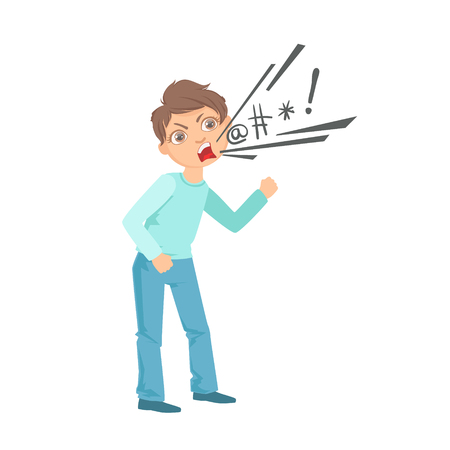Saving Someone from a Faux Pas

If you tend towards perfectionism, or even if you’re just normal, you might have experienced a dreaded moment of saying or doing something that shocked you, and those around you, too.
It happens to all of us at least once in our lives: choosing a wrong moment to make a joke, absentmindedly blotting your lipstick on the cloth napkin during dinner, or maybe you hear yourself using an idiom that is offensive.
Whoops!!
When blunders happen, you can only hope someone else hasn’t noticed. And if onlookers are kind, they will manage to quickly distract from your faux pas.
A Little Humor Can Save a Faux Pas
We all know how it feels to endure embarrassment because of an accidental or absentminded social error. So when you are with someone who commits a faux pas, you do your best to soften the situation and indirectly let that person know all is well.
When it’s an obvious blunder, seen or heard by others, a little humor goes a long way.
For example, a guest at your home spills the salad on the floor because while passing it he is talking and gesturing to make a point and, passing single-handedly, misses the edge of the table. It’s pretty clear he’s going to feel extremely embarrassed and may have embarrassed others as well.
If you think fast enough, a lighthearted and friendly save on your part will make things better immediately.
“Marty, you always say you like living on the edge! Way to go! Seriously, though, don’t worry about a thing. It happens to everyone.”
Then proceed to do what is necessary in getting the dinner back on track in a lighthearted and upbeat way.
Of course Marty feels badly, but you’ve made the save. Everyone will appreciate you for it.
Brush it Off
Some situations can’t be solved with humor. Yet, aiming to help the other person avoid feeling embarrassed for something she obviously wished she hadn’t done, is in order.
I was at a coffee shop with three other friends. The person next to me accidentally coughed, scattering tiny scone particles and a bit of coffee from her mouth and onto the person on the other side of her.
The “victim” immediately brushed the debris away before the other friend could muster, “Oh no, I’m so sorry!” It was clear my friend on whom the particles landed was making a save as she replied sternly and with a smile, “Oh hush. Nothing’s wrong!”
The conversation went on and a little later, the person who’d coughed with her mouthful made a joke referencing her own faux pas when she took an extra-long time to make sure she had nothing in her mouth before speaking.
Being able to laugh at yourself is one way of putting a mistake into context.
Ignore it and Change the Subject
There are times when a faux pas should be overlooked and ignored. Saying nothing and acting as if nothing happened is often the best thing to do.
- A person is talking too much, explaining far and above too many details about something that happened to him or why one thing is better than another.
- Someone makes a sudden play on words, but the “play” has a slightly sexual connotation that wasn’t pursued as a conversation topic.
- A reference is made to a person or situation that shouldn’t have been made because the person is standing right there. “John is famous for putting his foot in his mouth, aren’t you John?”
Facial expressions that don’t validate a slip of tongue or rude remark shouldn’t give away your shock or feeling aghast. However, laughing at a rude comment from the shock of it is out of place and is also a faux pas.
Once in a while, we sense that another person is so nervous that any small gesture of kindness can soothe the situation. Changing the subject is one of the kindest gestures a person can make.
Situation Saved – Now What?
Sometimes we are ignorant to an oncoming faux pas – we don’t realize we’re making one until it’s well underway. And sometimes we don’t realize we’re making one at all – until it dawns on us later!
When you make a social error and you know you did:
- Apologize.
- If you need to undo something, or replace something, reach out to the person later to do so.
- Laugh at yourself.
- Move on and don’t dwell on blunders.
Main points on being etiquette-ful:
- Most social errors occur innocently, and so we always want to take away embarrassment rather than add to it.
- Being kind sometimes means moving on with abrupt changes of topic.
- It’s a never-ending chore to learn to better fit into society. And learning isn’t always fun.
- It’s rude to correct others.














